In October Viz released almost 600 pages of comics by one of my favorite cartoonists, Mitsuru Adachi, in the form of the first volume of Cross Game, a series from 2005. In honor of Adachi finally getting something else in print, and in the interest of hopefully furthering the recent discussion of genre, “Comics”, and “Art”, I’d like to share a few thoughts I had upon reading the volume.
But first, a quote! Yesterday on HU Jason Overby had a post up in which he had this to say about the changing face of comics history –
It brings up a good point about how arbitrary “comics history” is. It’s easy to see that positive associations, as opposed to some more objective system of value, are what impel bloggers (critics?) to write about Kirby or King more than Toriyama or Baldessari.
This point applies even more so to creators who have never had their work officially represented in English, or have only had released a small, unrepresentative portion of their total output. What is the history of comics, when critical figures who influenced huge swaths of the work that is available have none of their own work available to an English-speaking audience?
This is the case for Mitsuru Adachi, a cartoonist who made his debut more than forty years ago and who, on a global level, rivals Rumiko Takahashi for popularity and acclaim.
Although Adachi was fairly well-known among the anime and manga communities of the eighties and early nineties, thanks to fan translations of an anime adaptation of his first major manga series, Touch, he’s had a sparse history of official releases in English. His official English debut came in 1999 in the pages of Animerica Extra with Short Program, a series of short stories connected only by their generally melancholic tone, lively drawing, and gentle, deft characterization. The serialization in Animerica Extra continued for two years, generating enough material to be included in two collected volumes, one released in 2000, followed four years later by volume two. For a major creator known for his slow-spooling multi-volume stories, this was a strange state of affairs.
My best guess is that the Short Program releases were meant to test the waters and gauge the potential audience for Adachi in America. And although I personally think Adachi is one of the world’s greatest living cartoonists, it’s easy to see why Viz would be nervous about rolling out one of his major series. They are some of the same reasons that have prevented a wide swath of Japanese comics history from making its way into English.
For one, American anime fans still drive a large part of the market, as companies bank on the synergistic marketing opportunities available from manga series that also exist in other media. And although Adachi had two full-length anime adaptations in the eighties, the American anime fan culture has a very fickle relationship with surface style. In other words, any potential spin-offs (until the recent Cross Game anime adaptation) exist in a form that might seem outdated to the bulk of the anime fan community.
The second, and probably more significant point, is the matter of genre. All of Adachi’s major series (including Touch, Slow Step, H2, Katsu!, and the recently released Cross Game) could be most easily slotted in the category of “sports comics,” although I’ve seen the label “romantic comedy” attached to his comics as well. With the exception of some very popular young adult sports fiction in the fifties and sixties, there’s not a very long tradition of sports fiction in America, and certainly little to no tradition of sports comics. In the eyes of many marketing strategists, a general audience uses a genre label as an aid to enter the story, a convenient short hand that serves as a hook on which to hang the other elements of the story. How do you sell a piece of fiction that most easily fits into a genre that doesn’t exist for its target audience?
Well, one way would be to try to create the market- to sell Adachi’s work to baseball fans. As a former baseball fanatic myself, I think Viz could very well do so with that kind of strategy. But in trying to sell Adachi’s work to the comics market, and therefore to comics reviewers and critics as well, there’s an additional challenge- that for certain types of critics working within genres can carry a whole host of other negative connotations.
I find it very illuminating to observe the purposeful way that Vertical has marketed Osamu Tezuka’s work in the past few years. They’ve been very careful to package and design the books in ways that echo much of the aesthetic of English independent comics, including employing well-known designer Chip Kidd for many of the early books, and continuing the overtly modern and fragmentary designs with the more recent work by in-house Vertical designer Peter Mendelsund. Looking at the exterior of books like Dororo or Black Jack, would you have any idea that these series fit squarely within swordplay and medical drama genres?
However, like most excellent genre fiction, Dororo and Black Jack play with the genres involved rather than being subsumed by them. This is the case with the work of Adachi as well. Cross Game is “sports comics” in the sense that the characters at the heart of the story love baseball, and playing it becomes a focus for much of their activity. But saying that “Touch” or “Cross Game” are about baseball is like saying that “Les Miserable” is about prison and sweeping and street fighting.
The first three volumes of Cross Game came out in October in one 576 page package. And how are they pitching it? As a tie-in to the spin-off anime, and as a “poignant coming-of-age story,” which, as far as marketing pitches go, isn’t half bad, as both elements happen to be true. They’ve minimized the baseball references in the description and press releases, and have centered around the relationships at the heart of the story, as well as attempting to capitalize on Adachi’s Japanese fame and reputation.
And it probably has a chance of succeeding. Cross Game itself, or at least the three volumes represented in the recent Viz release, has all of the elements associated with classic Adachi series- clear and confident drawing with very smooth, natural storytelling, slow-moving plots that suddenly veer into unexpected and unpredictable territory, breezy dialogue, and melancholic, sometimes unmotivated young characters whose decisions are often surprising but are never inexplicable.
And yet it may be too genre bound, and maybe too casual, to be taken seriously by many critics. Present in the series are several stylistic choices that could be disconcerting for an audience unaccustomed to them. These include Adachi himself appearing in throw-away panels to mock his own work, background characters pitching other Adachi series to the reader, and a tendency to occasionally veer into cliché. Fortunately these clichéd situations are usually minor detours from the main plot, and seem to be the result of the unrelenting workload of weekly serialization. (Another possibly undesirable byproduct of this pace is the sometimes workmanlike background artwork, which occasionally takes stylistic detours from the figures, which are always confidently delineated.)
Last week Noah generated some heated feedback when he suggested that the manga community engages in a lot more reviewing than criticism, and that books like a Drunken Dream which “despite its genre links, doesn’t fit easily into current marketing demographics,” will have a hard time going without some in-depth criticism to create context for the work. As I mentioned in the comments section, regardless of how you might feel about the “review” versus “criticism” premise, Hagio and Adachi might be in the same boat. They’re sitting on many of those same lines of division.
Well, Noah, I’d like to respond to your post by urging interested readers to BUY! a copy of Cross Game. And cross your fingers that, one day, Touch will be available in English.
And critics, wherever you are? Try to go easy on Mr. Adachi, won’t you? It is just a baseball comic, after all!
(Someone once told me that sarcasm doesn’t come across well in print.)

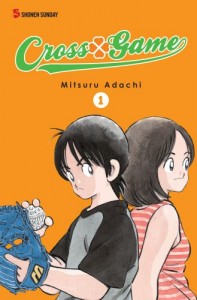
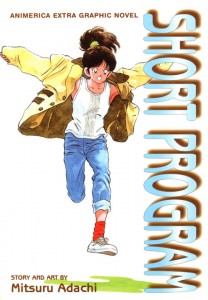
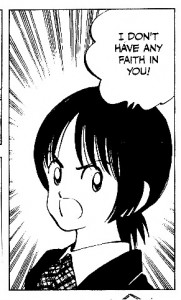
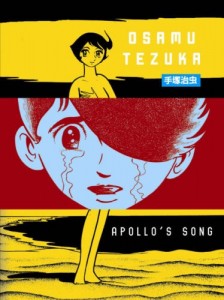
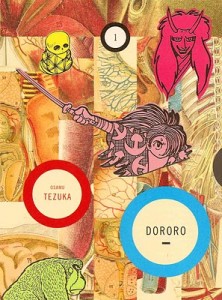
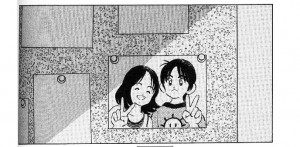
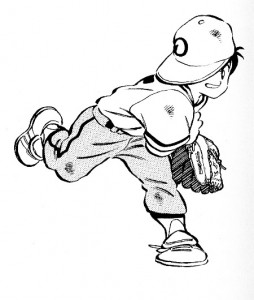
I love the line work in that bottom drawing. Very Hokusai.
I love Adachi! Viz could definitely sell – maybe not this series – but some of his other series to baseball fans. The “retro” art will actually be a plus because baseball is such a nostalgic sport. It’s actually a bit shocking how well the gentle nostalgia of Adachi matches up with the gentle nostalgia of American baseball writers/fans. Baseball fans won’t care about the art style either. Bookstores should shelve this book in the sports section, the way Oishinbo is shelved in the cooking section.
I’d never specifically thought about the fact that Adachi’s characters – especially his male protagonists – often seem unmotivated or distanced from their own lives. This is true. I love his female characters, they are really, really strong. The halves of his romantic pairings never seem to need each other, just to have great affection for and like each other. I always liked that. I also love that lots of his stories have female protagonists.
I always thought his self-insertions and shameless self-promotion were hilarious, in that running gag kind of way, but it’s a bit different when you can easily download whatever other work he is exhorting you to buy this week. I can see how this would be frustrating with none of the other work available in English.
“What is the history of comics, when critical figures who influenced huge swaths of the work that is available have none of their own work available to an English-speaking audience?”
Word. That’s why I think the work of cartoonists like Chris Ware, Seth, and even Brandon Graham on his Livejournal to spread the word about the obscure comics that have influenced them is so important. It’s also interesting to look at the differences in perception of work that is actually available in English — for instance, Moebius is definitely a bigger deal in the US than Jean Girard, while in Europe I would say they’re seen (as they should be) as two sides of the same coin. Similarly, Naruto is a bigger seller than One Piece in the US, but the opposite is true in Japan.
Also I second the recommendation for Cross Game and anything else by Adachi. It’s good comics.
Noah,
I think so too!The drawing in question is from the frontispiece of Cross Game- a blowup of one of the panels. It’s a shame that with the size of the standard tankoubon format much of the vitality of the line goes away- it’s hard to create a page that will look really vital and bouncy at 50 percent reduction and not look crude and overly bold at eighty percent (i.e. roughly the size of the original magazine printing).
Subdee- Glad to hear someone likes the self-insertion- maybe that means I’ll get used to it :) I’m surprised more Tezuka reviewers haven’t commented on that type of thing as well, or seen it as an issue.
Andrew- I should have credited your link in the chain regarding this post! Frank Santoro post-> Andrew White comment -> Jason Overby quoting comment on post -> me quoting post commenting on comment on post. Done! The record is now straight :) And I enjoy cartoonists talking about their favorite obscure work too- thought it was interesting that Frank King was essentially in a similar position only five years ago- an unknown shadowy figure barely read except by a small cluster of enthusiasts…
Sean– you’re getting me to rethink my attitude to sports comics, which I’d characterise as one of patronising neglect.
But thinking on it more or less objectively, I see that this is an important genre or subgenre. Sports do encapsulate all the human passions– how could they not be worthy subjects of art?
In prose, we have Bernard Malamud’s ‘The Natural’ about baseball, Bud Schulberg’s ‘The Harder they Fall’ about boxing…the list can go on…
Re: comics: yes, it’s a bit odd that sports comics never really caught on in the USA. We have Gil Jordan in the strips, and boxing strips like Joe Palooka and Big Ben Bolt– both extinct.
In comic books, there have been legendary disasters such as Will Eisner’s ‘Baseball Comics’, DC’s ‘Strange Sports Stories’ and ‘Champion Sports’, Marvel’s ‘NFL Superstars’. The only even marginal success I can recall is Vortex’s Nascar books.
It’s not just Japan or Korea where sports comics are popular; Britain has a long and successful run of soccer comics such as ‘Roy of the Rovers’ or ‘Strike’. France has one of the most popular comics series in ‘Les Rugbymen’, or in the formula one racing albums of ‘Michel Vaillant’.
Is there some secret sauce? One day, an American publisher will hit it right. perhaps by republishing Adachi?
I’m a big fan of Adachi after reading many many volumes of H2 in scanlation (sadly the scanlators stopped about 3 volumes before the end of a 30+ volume series).
Cross Game was quite enjoyable and releasing it in a triple volume was a good move by Viz. I think subsequent volumes are going to be slightly smaller double volumes. I’ll be writing about it some day (at this point I think I’m just going to wait for v.2 and then talk about it).
One of my favorite aspects of Adachi’s work is the quiet moments, the slowness of a lot of the scenes.
fwiw: I wrote about H2 here: http://madinkbeard.com/blog/archives/h2-by-mitsura-adachi
Which, since sports genre came up, was my part of a longer series on baseball comics: http://madinkbeard.com/blog/archives/tag/baseball
Alex-
It seems really strange that no one’s hit the jackpot yet- perhaps in the next decade! Have you ever read Manga Manga, the Fred Schodt book about the manga industry up into 1985? It has a great section on some pretty bizarre sports manga.
Derik- I can’t wait to read what you have to say about Cross Game, and definitely agree with you on the excellent choice by Viz regarding the volumes. And he truly does have some extroardinarily quiet and still moments. Just a great cartoonist. I suppose at some time I’ll try reading some of his stuff on a computer screen- it’s just really difficult for me for aesthetic reasons, with a dollup of moral reasons and awkward translation reasons :) Anyway, be sure to post a link when you have something up about it!
Pingback: Crossing the Pacific either way « The Manga Curmudgeon
I enjoyed this post a lot, Sean, and there were so many bits of it I felt tempted to quote and say “Exactly!” that it would be rather ridiculous to include them all in my comment.
Personally, I adore sports manga a lot—in fact, yesterday I read four volumes of it for a feature I’m doing at my site—and Cross Game is a stellar example of the genre particularly because it takes such time to flesh out the characters and give them things to do other than play baseball.
I have no idea of how well the comic is selling, but I’ll be doing my best to give each one the attention it deserves. And I’ll continue to desperately hope that one day, we will get Touch. It seems like another excellent candidate for the omnibus treatment.
Thanks for the kind words, Michelle. Hopefully (for us, anyway, that want to see more Adachi work in print) enthusiasm for Cross Game might engender some enthusiasm from a broader cohort of people than are currently reading it. And Viz’s marketing people seem to be aware that it might be a longer haul effort- more on that in a follow-up Cross Game post that will hopefully appear here sometime in January. And, please, share a link here of any Adachi-related posts you put up :)
I’ll try to remember to return once I’ve gotten my hands on Cross Game 2! :)
In the meantime, here are my reviews of the Adachi properties currently available in English.
Cross Game 1
Short Program
Short Program 2
Thanks for encouraging their linkage. :)
I love Mitsuru Adachi. He is my favorite mangaka. Even tho Cross Game is his first work to be released in english and vol 06 is just about to be released. I was so happy the day I read cross game was coming out.
I really really hope and wish for his other works to be released in english. 2 of them have in the last few years been released in french. Touch and Rough. I hope to see them as well as Miyuki H2, and Katsu in english.
I would die and go to heaven if I ever saw his animes released on boxset in America. Even if they were in Japanese with english subs I would buy them.